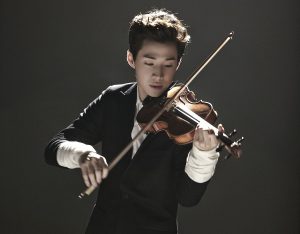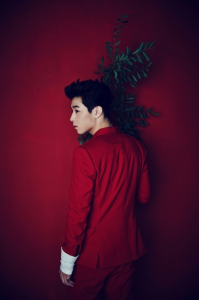 The recent news of Henry leaving SM Entertainment, which unfortunately did not come as a surprise, raises wider questions about the treatment and position of non-Korean artists within SM, particularly artists intended for the Chinese music market. The company persistently trains and debuts non-Korean idols to supposedly break into the Chinese market, only to later mistreat or neglect them.
The recent news of Henry leaving SM Entertainment, which unfortunately did not come as a surprise, raises wider questions about the treatment and position of non-Korean artists within SM, particularly artists intended for the Chinese music market. The company persistently trains and debuts non-Korean idols to supposedly break into the Chinese market, only to later mistreat or neglect them.
Rather than putting in the effort to harness these artists’ full potential, SM exploits their ties to China as a selling point: this is often seen through Chinese artists being placed in subunits designed to sell SM’s music in China. There doesn’t seem to be a long-term plan to keep non-Korean artists with the company after the contracts expire, and so there is little action to enable the artists’ growth and stability as public icons in Korea, despite the artists supposedly being K-pop idols.
Henry, a Canadian artist of Hong Kong and Taiwanese parentage, made his first appearance in Super Junior’s 2007 song “Don’t Don” as a solo violin player during a break in the song. Despite the “only 13” fan backlash at the supposed prospect of a new member, he and Zhou Mi were later recruited for Super Junior-M, a subunit debuting in 2008 who would release music in Mandarin, aiming to succeed in the Chinese music market. So while Henry himself is from Canada, he and Zhou Mi were added to Super Junior to help SM expand in China.

However, although most fans grew to accept Henry and Zhou Mi over time and some even wondered why they weren’t added to the main group (especially with the loss of several members over the next few years), the two idols were largely inactive outside of any Super Junior-M promotions. These were in China, too, so from the beginning, both had a limited chance of establishing their reputation as artists in Korea.
It was only five years after his group debut that Henry had his Korean solo debut with the album Trap. It is important to note that this was the first solo debut of a group member in SM in years; this was a valuable opportunity for Henry, and the title song’s popularity was boosted by featuring senior idols Kyuhyun and Taemin. Henry did have minor solo appearances before this, such as a stage at Super Junior’s world tour Super Show 4 covering a medley of songs in English, but it was mostly only after his official solo debut that SM began to promote him on Korean television. Henry has since had another comeback and several SM Station releases in multiple languages, and expanded his domestic and international fanbase. However, without the desired album sales, SM pushed Henry’s career more towards television: although this did gain him public recognition, it was more as a variety idol than a musician.
It also still remained that he and Zhou Mi would only ever be part of the M subunit of the group, and would not have the same privileges as the original Super Junior members. From the beginning, Henry’s place in the K-pop industry was decided by SM to be minimal: a fluent speaker of Mandarin, Cantonese and English to help with global expansion, and a hardworking and multi-talented artist who could make his own contributions rather than needing to be provided for. Through his own dedication and talent he did rise above some of the restrictions, but ultimately, that still had its limits.
 Super Junior’s Hangeng was the first Chinese artist in SM to leave the company, filing a lawsuit over mistreatment in 2009. Meanwhile, non-Korean artists who have been with SM for a number of years are now being generally left to themselves. Zhou Mi was finally given a solo debut in 2014, aided by featuring Exo’s Chanyeol and Tao for rap parts in the Korean and Chinese versions respectively. He has also been a regular host on several shows, both on radio and television; although these were usually in Korea, they were often aimed at Chinese audiences, such as MBC 900AM’s Idols’ True Colors, which established his image as a K-pop artist who was part of the process of reaching out to China. His 2016 Korean comeback “What’s Your Number?” was unfortunately timed, and was badly affected by the beginnings of the THAAD tensions between China and Korea (which later resulted in a temporary ban on Korean entertainment in China). Zhou Mi has been quite absent since, and only released an SM Station song in April this year. Nevertheless, he has still been offered more opportunities and received better treatment than former fellow member Hangeng.
Super Junior’s Hangeng was the first Chinese artist in SM to leave the company, filing a lawsuit over mistreatment in 2009. Meanwhile, non-Korean artists who have been with SM for a number of years are now being generally left to themselves. Zhou Mi was finally given a solo debut in 2014, aided by featuring Exo’s Chanyeol and Tao for rap parts in the Korean and Chinese versions respectively. He has also been a regular host on several shows, both on radio and television; although these were usually in Korea, they were often aimed at Chinese audiences, such as MBC 900AM’s Idols’ True Colors, which established his image as a K-pop artist who was part of the process of reaching out to China. His 2016 Korean comeback “What’s Your Number?” was unfortunately timed, and was badly affected by the beginnings of the THAAD tensions between China and Korea (which later resulted in a temporary ban on Korean entertainment in China). Zhou Mi has been quite absent since, and only released an SM Station song in April this year. Nevertheless, he has still been offered more opportunities and received better treatment than former fellow member Hangeng.
Partly as a result of these diplomatic tensions, despite being the leader of F(x), Victoria has been mostly in China for several years, which has supposedly impacted the group’s chance of releasing new music together. Amber has turned to YouTube and social media to promote herself and her own music, having been repeatedly put on hold by SM, though official releases are still done under the SMTown channel. However, being an American artist with Taiwanese parents and not showing much interest in the Chinese music industry, Amber’s contributions to SM have been more through her ability to connect with international English-speaking fans.
Meanwhile, although there aren’t noticeable problems for the newer non-Korean artists in the company, such as the members of NCT, SM has repeatedly used the excuse of his limited Korean skills to cap Winwin’s line distribution in songs, but that doesn’t explain his short screentime in MVs, considering his position in the group as lead dancer. Non-Korean artists closer to the ends of their contracts are clearly less of a priority, as SM no longer sees the possibility of making profit from promoting them as soloists. But even the newer ones are showing signs of previous problems with SM and their treatment of non-Korean artists, in what seems to be a repetitive issue.

On the other hand, Lay’s recent absence from Exo and the K-pop industry to promote his solo music career in China is being used by SM for benefit. Exo has continued without Lay, leading to growing doubts from fans over Lay’s place in the group, especially as he is now the only remaining Chinese member. Nevertheless, Exo still releases Chinese versions of its MVs, showing its dedication to appealing to the Chinese market.
Furthermore, as Exo’s final tie to China, SM has clearly invested more in Lay after the previous members left and due to THAAD tensions: numerous solo releases and variety show appearances is certainly an improvement from the small line distributions he received in the group, and limited opportunities to showcase his dancing skills despite being a main dancer. Therefore while THAAD has limited Lay’s career in Korea, it has been the stimulus for his growth in China. Lay’s solo activity could be seen as immensely beneficial for SM if he does return to the group, having finally achieved SM’s goal of making a name for himself (and for Exo) in China. Is this SM’s most successful yet unplanned breakthrough with the Chinese market?
 All of this generally leads to the idea of SM wanting the attention of the Chinese market yet being unwilling to work in the long-term favour of the artists themselves. While SM is beginning to improve its treatment of non-Korean artists, it still has a long way to go in terms of establishing successful and stable musical careers for them in Korea. There is certainly a difference in the way non-Korean artists are treated by the company: they are seen more as a gateway to a bigger field. Yet surely proper and continuous investment in these artists would be worthwhile, as seen with Lay (late, but there nonetheless). NCT will be debuting a China unit this year: has SM learned from the past, and how successful will this project be?
All of this generally leads to the idea of SM wanting the attention of the Chinese market yet being unwilling to work in the long-term favour of the artists themselves. While SM is beginning to improve its treatment of non-Korean artists, it still has a long way to go in terms of establishing successful and stable musical careers for them in Korea. There is certainly a difference in the way non-Korean artists are treated by the company: they are seen more as a gateway to a bigger field. Yet surely proper and continuous investment in these artists would be worthwhile, as seen with Lay (late, but there nonetheless). NCT will be debuting a China unit this year: has SM learned from the past, and how successful will this project be?
(SM Entertainment, Yonhap News, China Daily, Global Times, Naver. Images via: SM Entertainment.)


